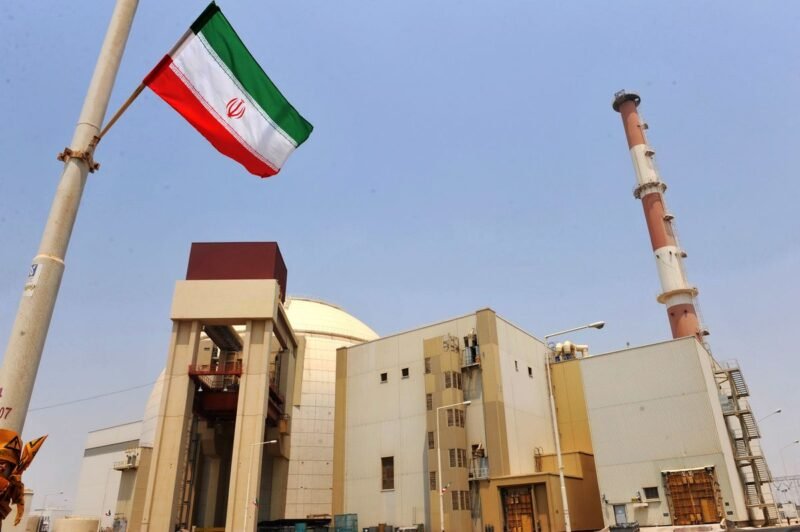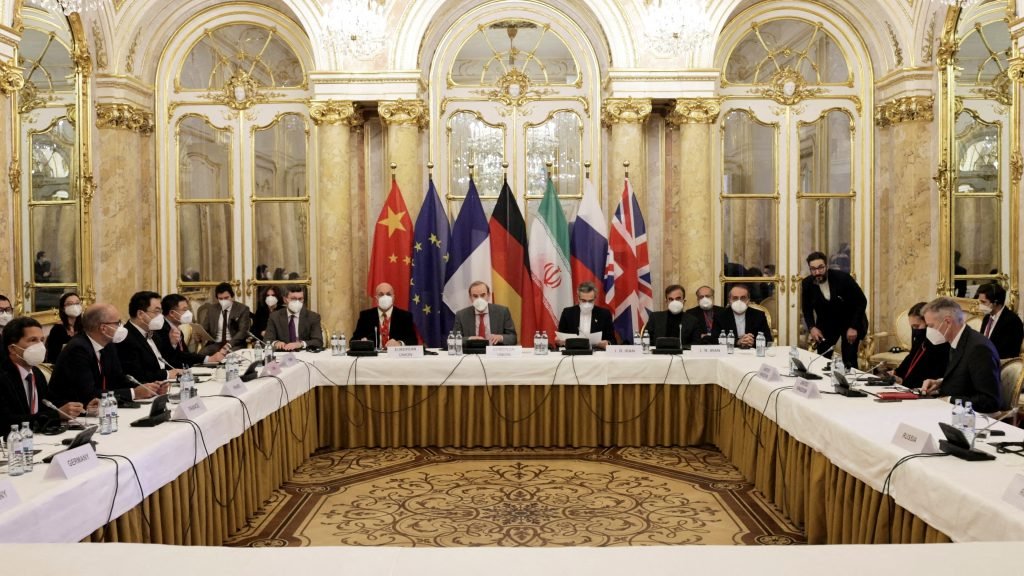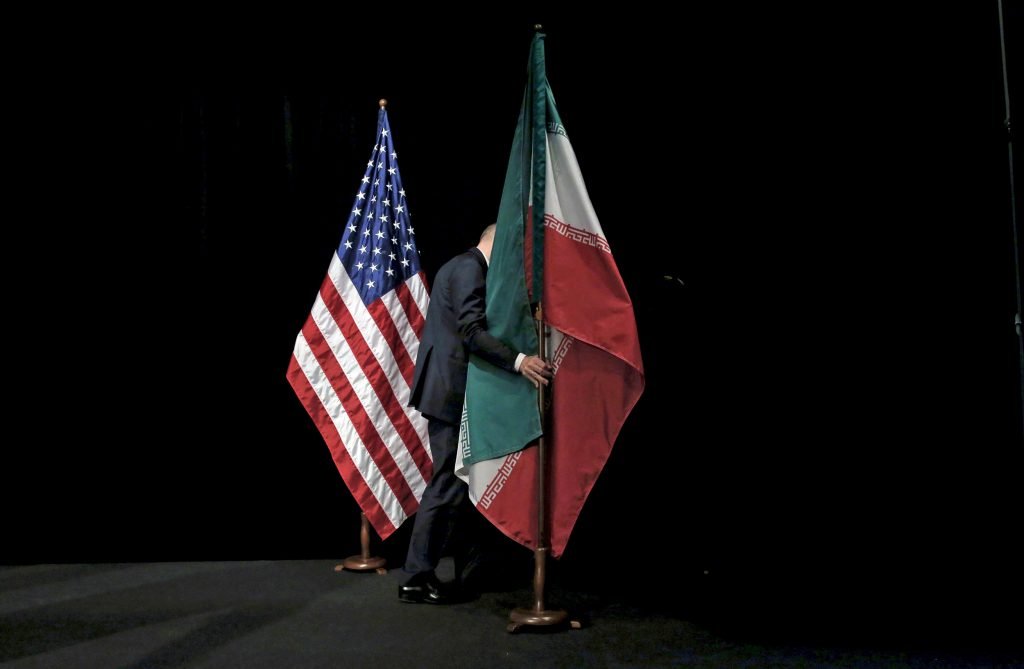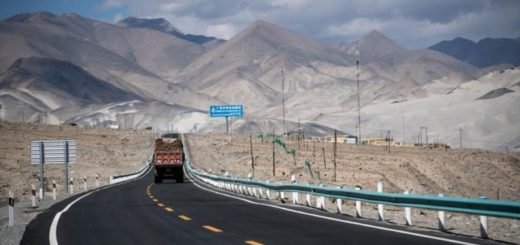Can the Iran Nuclear Deal be a casualty of power politics?

Iran’s nuclear programme started post-President Eisenhower’s ‘Atoms for Peace’ announcement in 1953 when the U.S. decided to help certain countries, which included India, Pakistan, Iran and Israel, to develop peaceful civil nuclear energy. The first 5mw atomic reactor was set up in 1967 at Tehran University, and the U.S. also provided them with uranium.
After the Iranian revolution in 1979, followed by the U.S. hostage crisis, relations plunged between the U.S. and Iran. The Mujahedin-e-Khalq (MEK) revealed that Iran’s nuclear programme was not “completely civilian” in 2002. In Natanz and Arak, new facilities had been built, and Pakistani nuclear scientist AQ Khan had contributed to the creation of the centrifuge designs. After Iran refused to abide by U.N. Security Council Resolution 1696, which ordered Iran to cease its uranium enrichment programme, sanctions were put in place in December 2006 due to U.N. Security Council Resolution 1737. These sanctions had a significant negative impact on Iran’s economy over time.
In 2015, Iran and P5+1 countries agreed to a historic Joint Comprehensive Plan of Action (JCPOA), also known as the Iran Nuclear deal. The JCPOA limited Iran’s nuclear activities and allowed International inspectors to monitor them. The economic sanctions were lifted on Iran. In 2018, the U.S., under Donald Trump’s presidency, unilaterally announced the withdrawal from JCPOA or the Iran Nuclear Deal, imposing sanctions on Iran. Iran also retaliated by increasing uranium enrichment limits.
In 2021, talks on JCPOA 2.0 started in Vienna after Joe Biden succeeded Donald Trump. multiple rounds of talks have taken place, but a deal has been so far elusive.
Why does Iran need a nuclear weapon?
The political and economic rivalry exacerbated by religious differences and sectarianism in west Asia between Iran, Saudi Arabia and Israel has been a primary concern for Iran. The US is another adversary to Iran in the region, forcing Iranians to work on nuclear weapons to maintain deterrence in west Asia. Tehran would be able to project more power in the area with a nuclear weapon. Iranian would dominate the area and secure Iran’s security and territorial integrity if they were developed, let alone used. Nuclear weapons are also ‘weapons of pride in the international realm, and acquiring them will increase Iran’s regional and global influence.

Why JCPOA?
U.S. intelligence sources predicted Iran could build enough nuclear material for a bomb in a few months without an agreement going into the JCPOA talks. The negotiating parties (P5+1) feared that Iran’s efforts to develop nuclear weapons could cause the region to spiral into another crisis. The JCPOA talks are aimed at stopping Iran’s uranium enrichment programme. International economic sanctions on Iran compelled it to look to the JCPOA for relief.
America wants to exit the middle east region to concentrate its resources in the Indo-pacific to balance the rise of China. Hence, any vacuum in the region will further deteriorate American interests in the volatile region.
Hurdles in JCPOA 2.0
The United States and Iran could not agree to negotiations to revive the agreement. In April 2021, talks to resurrect the agreement were underway. In March of this year, the pact appeared on the verge of being revived. However, negotiations fell because Iran demanded the U.S. take its elite Revolutionary Guards off the Foreign Terrorist Organization (FTO) list. The U.S. hesitates to accede to Tehran’s demand that the IRGC be taken off the list to complete the accord. According to U.S. Secretary of State Antony Blinken, the IRGC’s “terror” designation is not covered by the nuclear agreement and necessitates extra concessions from Iran. According to U.S. officials, Iran eased its demand to remove its potent Revolutionary Guards from a list of terrorist organisations and withdrew its desire to prevent U.N. inspections of its nuclear facilities. Iran’s demand to dissuade International Atomic Energy Agency from ending its probe of undeclared sites in the country. In response to it, the U.S. state department said, “we do not believe there should be any conditionality” between the deal and undeclared sites.
The signing of the revive agreement could not take place due to the repeated failure of the American ally, i.e. Israel, to agree on the protocol. Israel’s position is further hardened due to the fractured government after the fall of Benjamin Netanyahu as the prime minister. Tel Aviv sees the Tehran nuclear weapon as a zero-sum game having no middle solution.

Simple reality
This agreement is the subject of intense political debate in both Washington and Tehran. The impression about being born in Tehran is one that President Raisi and his team want to convey to the Iranian public is that it may be significantly better than what Hassan Rouhani would have bargained for. This is a division between the so-called reformers and so-called hard-liners in Iranian politics. Both nations have been engaged in this game for several months. The Democratic Party is struggling in Washington, where President Biden’s support rating is at a historic low. After the failure in Afghanistan, he cannot afford to be seen as weak. Thus, he is taking care to maintain a presentable appearance.
Conclusion
The Iranian nuclear deal has stalled due to the competing interests of different regional and non-regional actors. No one wants to blink an eye fast, as it will be seen as a sign of weakness. This perfect game of chicken and egg can potentially engulf west Asia into a prolonged crisis.



















